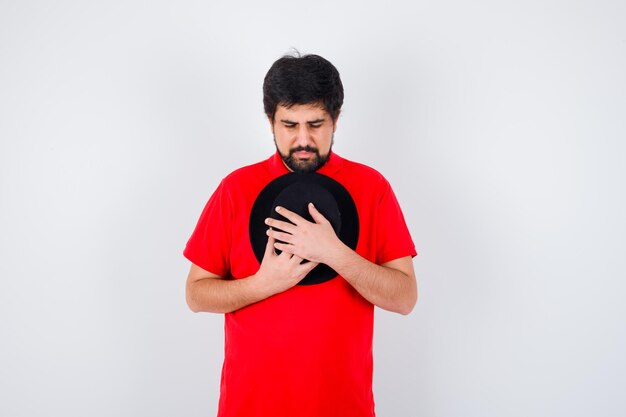
Do your nipples hurt? It’s more common than you might think. While sore nipples are often associated with women during periods, pregnancy, and breastfeeding, men can also experience nipple sensitivity and pain. Though some men might feel uncomfortable bringing it up, there’s no need to be embarrassed—it’s a valid health concern that happens to people of all ages.
If you’re dealing with nipple pain, it’s important to understand that pain is usually a sign something’s not quite right. It might not even be the nipple itself causing the issue; other areas of the body could be playing a role. Talking to a healthcare provider about your symptoms is a smart step, and the good news is, there are ways to address the discomfort.
### Possible Reasons for Nipple Pain in Men
1. **Hormonal Changes**
Changes or imbalances in hormone levels can lead to sensitivity or pain. While estrogen is typically thought of as a “female hormone,” men also produce it in small amounts. If estrogen levels rise too high, it can cause nipple tenderness. At the same time, a drop in testosterone—commonly known as “low T”—might also trigger pain or changes in breast tissue.
Some common hormonal causes include:
– **Puberty:** Hormonal fluctuations during adolescence can cause temporary nipple pain in boys.
– **Aging:** Testosterone levels naturally decrease with age, potentially leading to discomfort.
– **Gynecomastia:** This condition, sometimes called “man boobs,” causes an increase in breast tissue and may occur during puberty or adulthood.
– **Pituitary Gland Disorders:** Problems with the pituitary gland, which regulates hormones, can lead to issues like hyperprolactinemia (excess prolactin) or even conditions that affect nipple sensation and breast tissue.
2. **Friction and Chafing**
Repeated rubbing against clothing—especially during physical activities—can irritate the nipple area. Poorly fitting workout gear or repetitive movements without proper protection can lead to discomfort. Skin-on-skin friction or stimulation during sexual activity can also cause temporary tenderness.
3. **Skin Conditions**
Skin problems like eczema, allergic reactions, or psoriasis can affect the area around your nipples, leading to itching, redness, and irritation. In some cases, skin cancer or a rare breast-specific skin condition called Paget’s disease could also be culprits.
4. **Infections**
Cracks or piercings in the nipple area can allow bacteria to enter, increasing your risk of infections. Though uncommon, men can develop mastitis, a bacterial infection that causes swelling, redness, warmth, fever, and pain in the breast area.
5. **Medications**
Certain medications might impact hormone levels or have side effects that include nipple tenderness. These include:
– **Testosterone Replacement Therapy (TRT):** While it can help with low T, excess testosterone can convert to estrogen, triggering imbalances.
– **Hormonal Therapy:** Hormone therapies for gender transitions may come with sensitivity in the nipple area.
– **Anabolic Steroids:** Steroid use can disrupt your hormonal balance and cause breast changes.
– **Other Medications:** Drugs for anxiety, mental health, or prostate issues might also cause nipple-related side effects.
6. **Breast Cancer**
Although rare, nipple pain—or other changes like lumps, discharge, or inversion—could indicate breast cancer in men. About 1% of breast cancer cases occur in men, so it’s important to pay attention to symptoms.
7. **Excess Weight**
Being overweight doesn’t directly cause nipple pain, but it can make the area more sensitive due to added fat and hormonal shifts. It may also lead to skin irritation through friction in skin folds.
### When to See a Healthcare Provider
Persistent nipple pain or unusual symptoms like bleeding, fever, or noticeable changes in the appearance of your nipples or chest should be evaluated by a healthcare provider. They might perform tests like a physical exam, blood work, mammograms, or ultrasounds to get a clearer picture of what’s going on.
Early detection often leads to better outcomes and treatment options. Once your provider identifies the cause, they’ll create a treatment plan to ease your symptoms. This might include medications, lifestyle adjustments, surgery, or other specific interventions.
### Key Takeaway
While it might feel awkward to bring up nipple pain, talking to a healthcare professional is important for your overall well-being. If you’re dealing with discomfort or have questions, reach out to a doctor to get the help you need. Taking action sooner rather than later can make a big difference.